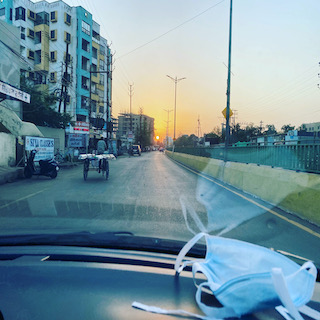
Assistant Professor,
Department of Psychiatry,
St.John’s Medical College Hospital, Bengaluru, India
Co-founder, General secretary Indian association of Psychiatry Trainees
Junior and senior residency from NIMHANS, Bangalore
Winner of Best Outgoing student best Psychotherapy award, NIMHANS
Received Young investigator award, World federation of biological Psychiatry
Early career researcher award, Schizophrenia International research society
Researchgate
sachin.n@stjohns.in
www.drsachin.org
Twitter @drsachin07
Volume 12 Issues 2 February, 2022
Clinical exposure is quintessential for any resident/trainee to learn, precautionary measures such as lockdown and travel restrictions have significantly reduced the number of people accessing mental health care in the hospitals. During the peak of the pandemic many outpatient departments were closed, and many hospitals restricted the admissions. This resulted in a lack of clinical exposure, which is pivotal for learning history taking, mental state examinations, other forms of clinical and diagnostic interviews. This is concerning as it may have an impact on the quality of the training. In addition, the majority of the training institutions redeployed psychiatry trainees for the medical management of COVID-19 patient care in general hospital settings. In many institutions, sub speciality postings and external postings were canceled and thus resulting in a lack of diversified exposure to a wide range of psychiatry cases.
The COVID-19 pandemic has impacted several aspects of personal and professional life. The psychiatry trainees are also no exception.
Academic programs such as seminars, case conferences, and journal clubs were conducted online as per the institutional policies and guidelines. However, research studies done in this regard indicate students were in more favor of in-person academics than virtual academic programs. Continuing medical education programs, conferences were also conducted online owing to several rules imposed by the government.
Psychiatry trainees continue to face several hurdles in completing a mandatory thesis dissertation. Most often submissions were delayed due to recruitment difficulties for their studies, this has also had an impact on research activities. Most universities postponed the entrance and exit exams and the uncertainties related to exams can adversely impact the trainees causing undue stress.
Even though COVID-19 adversely affected several aspects of training, it has opened new avenues such as telepsychiatry, where students can learn through online mode by virtual examination, attending the academic programs online. In the current scenario where new variants of COVID-19 are spreading across several countries of the world and no one knows when the pandemic is going to end. Staff and trainees should be flexible and adapt to the pandemic situation and make sure there should be no compromise in the quality of psychiatry training. Departments should set up trainee-friendly guidelines for continued training and also care should be taken to avoid burnout among the trainees.

